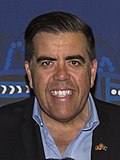List
| No. | Name | Portrait | Party | State | Term of office | Comments | ||
|---|---|---|---|---|---|---|---|---|
| 1 | Sir Frederick Holder |  | Independent | South Australia | 9 May 1901 | 23 July 1909 | Resigned from Free Trade Party upon election as speaker. Died in office. | |
| 2 | Dr Carty Salmon |  | Liberal | Victoria | 28 July 1909 | 19 February 1910 | ||
| 3 | Charles McDonald |  | Labor | Queensland | 1 July 1910 | 23 April 1913 | First time in role. | |
| 4 | Sir Elliot Johnson |  | Liberal | New South Wales | 9 July 1913 | 30 July 1914 | First time in role. | |
| (3) | Charles McDonald |  | Labor | Queensland | 8 October 1914 | 26 March 1917 | Second time in role. First Speaker to serve multiple terms. | |
| (4) | Sir Elliot Johnson |  | Nationalist | New South Wales | 14 June 1917 | 6 November 1922 | Second time in role. Most recent Speaker to serve multiple terms. | |
| 5 | William Watt |  | Nationalist | Victoria | 28 February 1923 | 3 October 1925 | First former government minister to become Speaker. | |
| 6 | Sir Littleton Groom |  | Nationalist | Queensland | 13 January 1926 | 16 September 1929 | Defeated in his own seat. | |
| 7 | Norman Makin |  | Labor | South Australia | 20 November 1929 | 27 November 1931 | ||
| 8 | George Mackay |  | United Australia | Queensland | 17 February 1932 | 7 August 1934 | ||
| 9 | Sir George John Bell |  | United Australia | Tasmania | 23 October 1934 | 27 August 1940 | ||
| 10 | Walter Nairn |  | United Australia | Western Australia | 20 November 1940 | 21 June 1943 | Remained as speaker following the mid-term fall of the Fadden minority government in 1941, until defeated in his own seat at the 1943 election. | |
| 11 | Sol Rosevear |  | Labor | New South Wales | 22 June 1943 | 31 October 1949 | ||
| 12 | Archie Cameron |  | Liberal | South Australia | 22 February 1950 | 9 August 1956 | Died in office. | |
| 13 | Sir John "Jack" McLeay |  | Liberal | South Australia | 29 August 1956 | 31 October 1966 | ||
| 14 | Sir William Aston |  | Liberal | New South Wales | 21 February 1967 | 2 November 1972 | Defeated in his own seat. | |
| 15 | Jim Cope |  | Labor | New South Wales | 27 February 1973 | 27 February 1975 | Resigned after the Whitlam government refused to support his naming of the Minister for Labour and Immigration, Clyde Cameron. | |
| 16 | Gordon Scholes |  | Labor | Victoria | 27 February 1975 | 11 November 1975 | ||
| 17 | Sir Billy Snedden |  | Liberal | Victoria | 17 February 1976 | 4 February 1983 | ||
| 18 | Dr Harry Jenkins Sr. |  | Labor | Victoria | 21 April 1983 | 20 December 1985 | First Speaker whose son was a later Speaker. | |
| 19 | Joan Child |  | Labor | Victoria | 11 February 1986 | 28 August 1989 | First female Speaker. | |
| 20 | Leo McLeay |  | Labor | New South Wales | 29 August 1989 | 8 February 1993 | ||
| 21 | Stephen Martin |  | Labor | New South Wales | 4 May 1993 | 29 January 1996 | ||
| 22 | Bob Halverson |  | Liberal | Victoria | 30 April 1996 | 3 March 1998 | ||
| 23 | Ian Sinclair |  | National | New South Wales | 4 March 1998 | 31 August 1998 | ||
| 24 | Neil Andrew |  | Liberal | South Australia | 10 November 1998 | 31 August 2004 | ||
| 25 | David Hawker |  | Liberal | Victoria | 16 November 2004 | 17 October 2007 | ||
| 26 | Harry Jenkins Jr. |  | Labor | Victoria | 12 February 2008 | 24 November 2011 [1] | First Speaker whose father was a Speaker. | |
| 27 | Peter Slipper |  | Independent | Queensland | 24 November 2011 [2] | 9 October 2012 [2] | Resigned from the Liberal National Party the day after his election as Speaker. Resigned the speakership in the midst of court proceedings. First independent Speaker since Frederick Holder. | |
| 28 | Anna Burke |  | Labor | Victoria | 9 October 2012 [3] | 5 August 2013 | ||
| 29 | Bronwyn Bishop |  | Liberal | New South Wales | 12 November 2013 | 2 August 2015 | First non-Labor female Speaker (third overall). Stood down after public outcry about profligate use of taxpayer funded travel benefits. [4] [5] [6] | |
| 30 | Tony Smith |  | Liberal | Victoria | 10 August 2015 | 23 November 2021 | ||
| 31 | Andrew Wallace |  | Liberal | Queensland | 23 November 2021 | 26 July 2022 | ||
| 32 | Milton Dick |  | Labor | Queensland | 26 July 2022 | Incumbent | ||